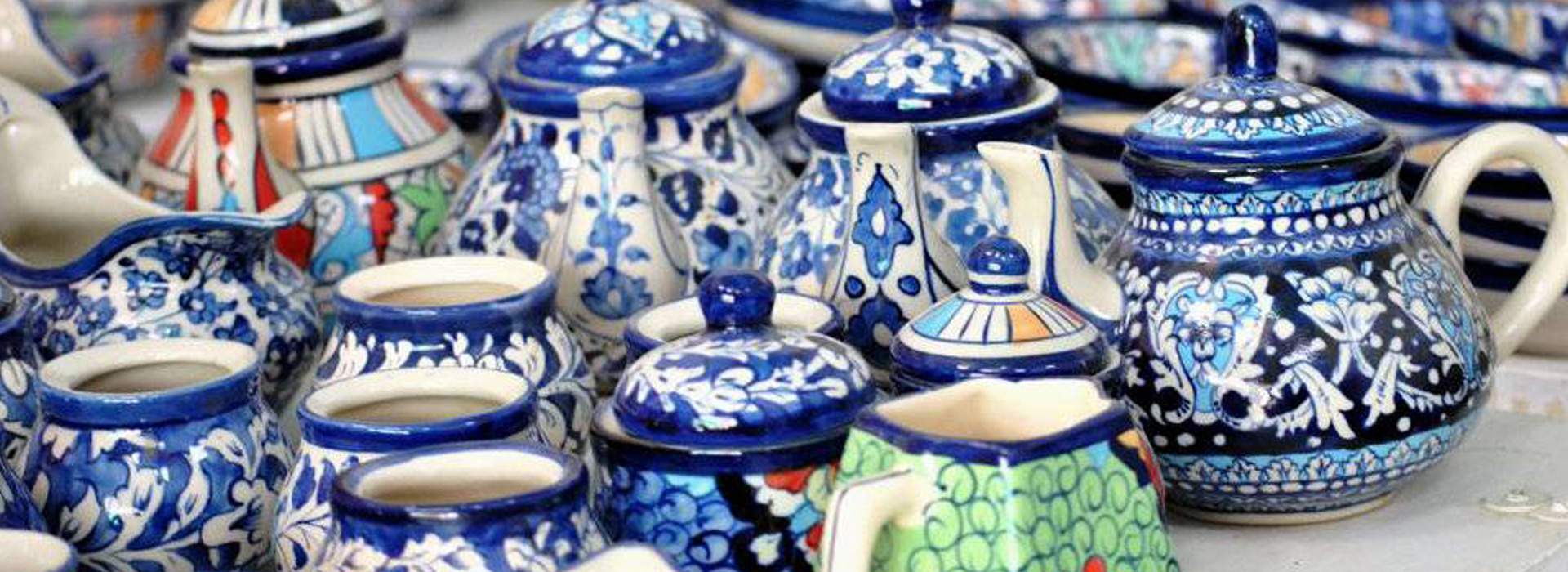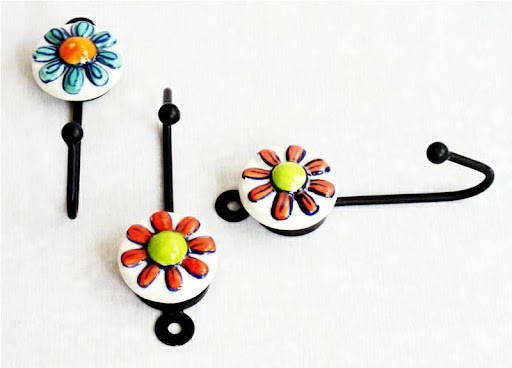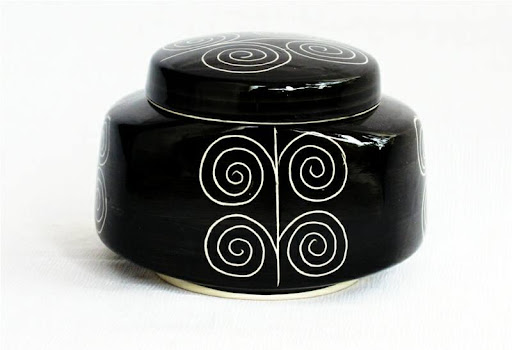
Khurja is a small town in Uttar Pradesh situated 80 Km from New Delhi. Khurja supplies a large portion of the ceramics used in the country. The origins of Khurja pottery may be traced to the early 14th century, when certain Timurid commanders and fleeing (injured) soldiers elected to stay. These men were mostly from the Mughal Empire's imperial Kheshgi Dynasty, descended from the Kheshigs, high administrators across the Empire.
The troops who were potters took their trade with them. Starting with red clay pottery, they progressed to blue glaze, white engobe, painted floral motifs with cupric oxide, and putting a soft glaze made of glass and borax, among other materials, on red clay items.
The production of home utensils using several metals was banned during World War II, and imports of ceramic products were severely restricted. The Government of Uttar Pradesh created a ceramic facility to address the demand for ceramic products, particularly for military hospitals. The plant was shut down in 1946 because of a decline in the demand for its goods after the war. Three small ball mills, two chimneys, and three small kilns were all part of the factory's machinery. The Government of Uttar Pradesh decided to create a Pottery Development Centre there rather than entirely shutting the facility. Uttar Pradesh Small Industrial Corporation Ltd.'s expansion efforts led to the establishment of UPSIC Potteries Ltd. in 1976–1977.
Khurja Pottery is a distinctive type of pottery because it is manufactured using a mixture of clay and feldspar and quartz rather than standard clay. Before the clay is moulded, two minerals are employed to add natural glazing: feldspar and quartz. It contains recognizable painted floral motifs in blue or brown on off-white backgrounds and is said to be the oldest glazed pottery of India. Red clay pottery was initially produced, but later, they switched to blue glaze and engraved white clay into red clay objects to create floral patterns. The Geographical Indication (GI) of the Agreement on Trade-Related Aspects of Intellectual Property Rights (TRIPS) agreement protects Khurja ceramics.



